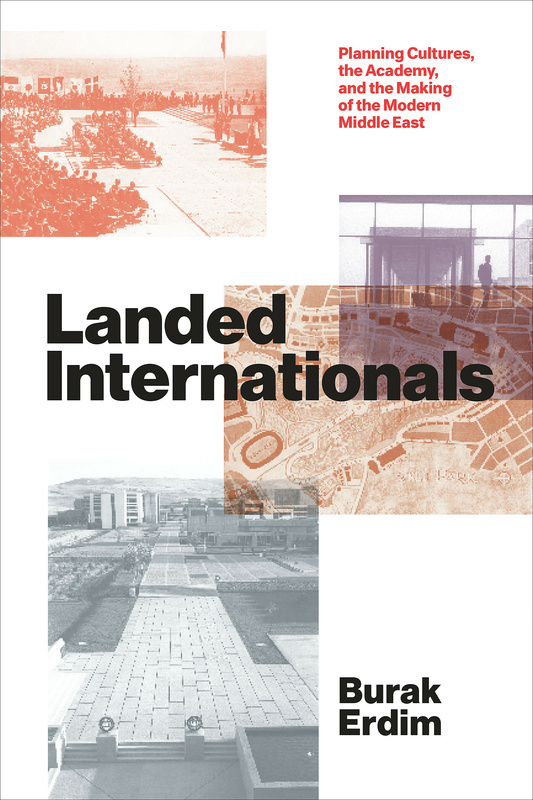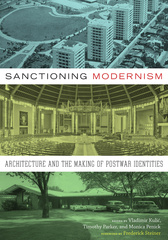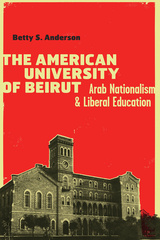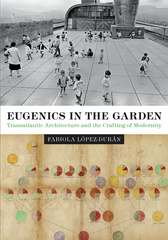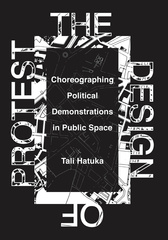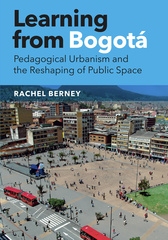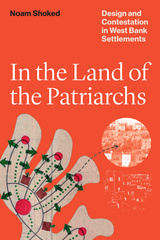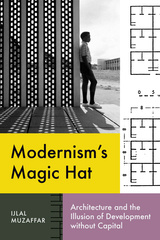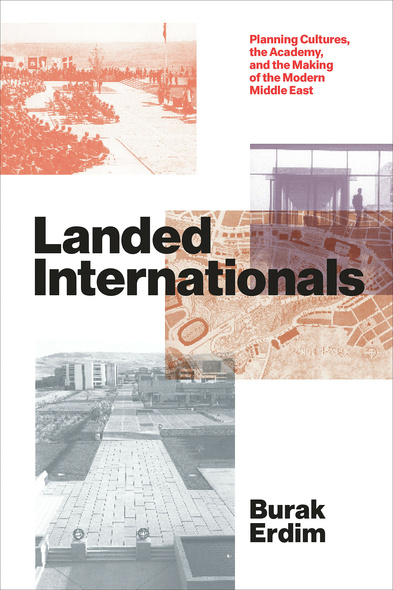
Landed Internationals
Planning Cultures, the Academy, and the Making of the Modern Middle East
2022 On the Brinck Book Award, University of New Mexico School of Architecture + Planning
Special Mention, First Book Prize, International Planning History Society
Landed Internationals examines the international culture of postwar urban planning through the case of the Middle East Technical University (METU) in Ankara, Turkey. Today the center of Turkey's tech, energy, and defense elites, METU was founded in the 1950s through an effort jointly sponsored by the UN, the University of Pennsylvania, and various governmental agencies of the United States and Turkey. Drawing on the language of the UN and its Technical Assistance Board, Erdim uses the phrase "technical assistance machinery" to encompass the sprawling set of relationships activated by this endeavor.
Erdim studies a series of legitimacy battles among bureaucrats, academics, and other professionals in multiple theaters across the political geography of the Cold War. These different factions shared a common goal: the production of nationhood—albeit nationhood understood and defined in multiple, competing ways. He also examines the role of the American architecture firm Skidmore, Owings, and Merrill; the New York housing policy guru Charles Abrams; the UN and the University of Pennsylvania; and the Turkish architects Altuğ and Behruz Çinici. In the end, METU itself looked like a model postwar nation within the world order, and Erdim concludes by discussing how it became an important force in transnational housing, planning, and preservation in its own right.
A meticulous investigation of the founding years of [Middle East Technical University] (1954–1969) in the broader context of the postwar politics of planning, design and technical assistance…Erdim’s book is full of insights from his detective-like and eye-opening work about both the cooperation and the struggles that marked the funding, administration, curriculum, location and design of METU...With its beautiful display of plans and photographs, Landed Internationals will be deeply evocative for anyone who has walked down the campus allée, the long pedestrian walkway connecting its diverse set of buildings and students. It is a richly textured book that meticulously demonstrates the role that housing and planning experts played in contestations over postwar visions of nation-building, development and expertise.
[A] highly stimulating study...this book is a precious contribution to present trends in historiography that insist on the necessity to critically analyse the notion of models and their circulation, and focus on the dynamics of constant interaction and mutual redefinition of international expertise and local societies.
Landed Internationals is an invaluable contribution to the growing understanding of the global practices of development in the twentieth century. This fascinating 'archaeology of encounters' renders in fine detail the equivocal role of international experts in the technical and political environment of Turkey. Proposing a novel paradigm of training and education as a central nexus through which to see critical actions and transformative agents, Erdim gives insights that vividly illuminate his case study while also offering broad relevance for histories of the twentieth century.
Landed Internationals is an important text. It provides an intimate, thoroughly documented, and well-crafted history of one of the modern Middle East’s most important educational institutions, the Middle East Technical University in Ankara. In the process of examining this school’s emergence in the aftermath of World War II, Burak Erdim persuasively integrates the architectural, technological, political, and ideological negotiations involved in realizing a remarkably complex project. This book provides a model of a comprehensive biography of a major built site and a fascinating narrative of the architectural expression of the problems of an emerging state.
Focusing on a fascinating yet understudied project, Landed Internationals offers an empirically rich, materially grounded, and transnationally informed study. Mining unpublished and largely unknown sources, Burak Erdim masterfully portrays the planning of the Middle East Technical University as a series of shifting coalitions among agents and agencies working across Cold War geographies. This is a truly original contribution to the history of postwar architecture and planning, the long and multifaceted history of Turkish-American relations, and the growing field of Cold War Studies.
- Abbreviations
- Introduction. Housing Internationals and the Postwar World Order
- 1. Encounters in Housing and Land Economics
- 2. Redefining Technical Assistance: From Policy to Training and Education
- 3. An Institute or a University? Assembling Experts and Inperts
- 4. A New Industrial Order: The Forum and the Nation
- 5. The Campus and the National Imaginary: Competing Narratives of Citizenship and Nationhood
- 6. Stewards of the Land: Culture, Currency, and the Nation
- Epilogue. METU at Large: METU as Revolution
- Acknowledgments
- Notes
- Bibliography
- Index

